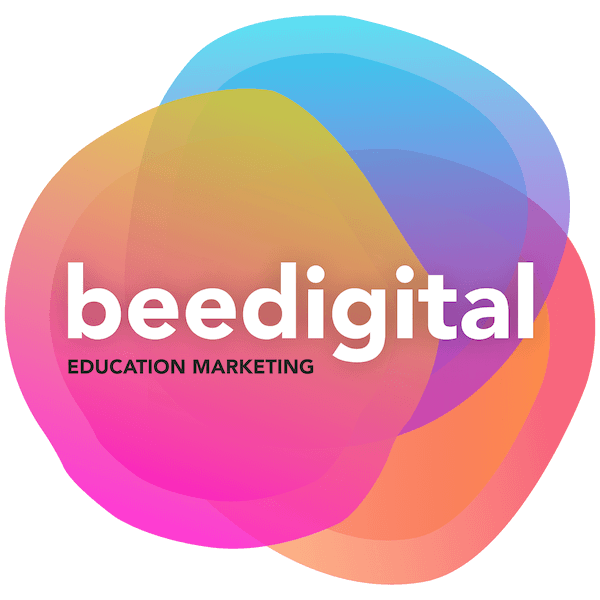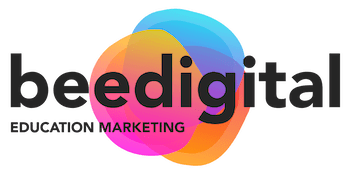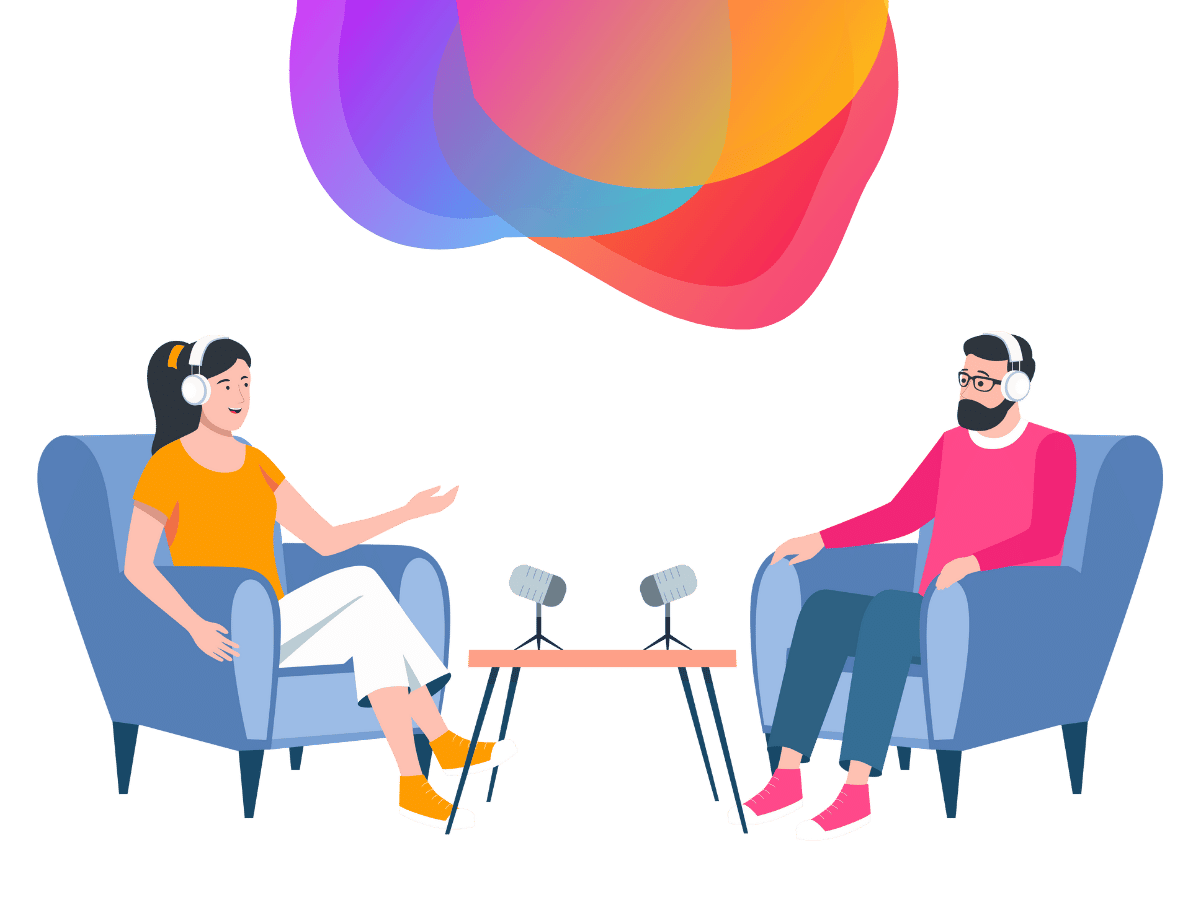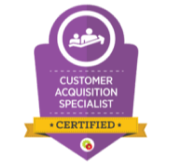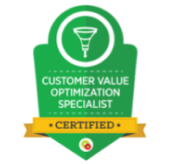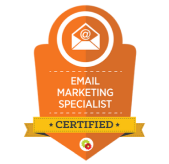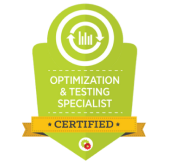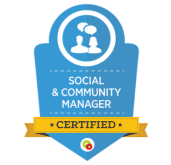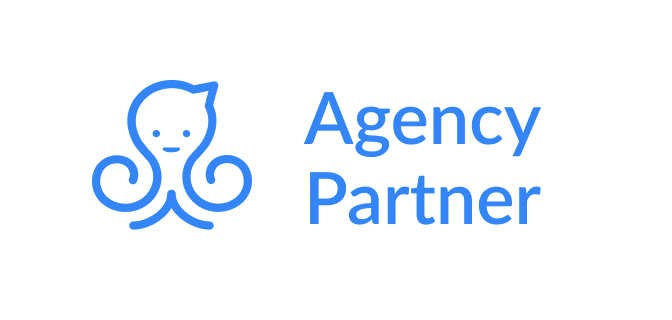Table of Contents
Podcasters in education are often under appreciated as a channel partner option.
Their listeners tend to be deeply engaged: tuning in regularly, valuing long-form discussion and trusting hosts who explore real issues in schools.
Collaboration and/or sponsorship gives you a chance to reach audiences in a way social and traditional marketing sometimes can’t.
Why could podcasting be effective as a channel for companies that work with schools?
Because 83% of teachers drive to work and, in a working frame of mind, are often listening to podcasts.
That’s why you should consider getting guest slots on podcasts, sponsoring edu podcasts, or even starting your own.
Why podcasts are different (and powerful)
Connecting to your educator audience takes way more than just blasting a cold list of emails, or taking a booth at an event.
Educational suppliers who want to future proof their brands need to be aligned to what’s actually happening in schools and what’s driving the opinions of teachers.
As part of a wider multi channel marketing strategy, being present in the podcast space is a cost effective and hugely rewarding way to do that.
Depth & trust
Podcasters often dive into big issues (policy, mental health, curriculum reform), and their audiences listen for solutions, stories, and reflection. When a host mentions a product or resource, it carries more weight because of the rapport built over dozens of episodes.
Evergreen content
Episodes stay “live” for a long time. A good mention can continue driving awareness and credibility months after publication.
Targeted communities
Many podcasts have listeners clustered in specific roles (leaders, primary teachers, SEND leads, etc.). If you find the right show, your message lands with people already interested in the topic.
Diverse distribution
Podcasters are usually media savvy.
They often share their episodes in other ways like on their blog, on Youtube, Podcast archives, and clips on TikTok. You get lots of different types of exposure (which, of course, you can re-share and like yourself).
Larger podcasts sometimes even do live shows, listener participation, events, webinars etc., so your brand can reach both current and future content customers.
The practical marketing benefits of podcast collaborations
Podcasts partnerships are the wrong choice if you’re looking for a quick win.
Including podcasts in your marketing strategy is about building your brand in front of a professional, engaged audience. It’s a long term play, but can be very beneficial.
👉 Build credibility early in the funnel
Podcasts sit in the awareness-to-consideration stage, where trust matters most. The long-form format lets you show expertise and empathy, positioning your brand as thoughtful and evidence-based rather than pushy.
👉 Reach niche, hard-to-target audiences
Education podcasts attract specific groups that traditional ads often miss. Each listen comes from someone already interested in your theme, which means less waste and better alignment with your buyer persona.
👉 Extend value across multiple channels
Podcast partnerships create long-life content you can repurpose across marketing channels. Clip audio for social, quote guests in blogs, or use transcripts for newsletters.
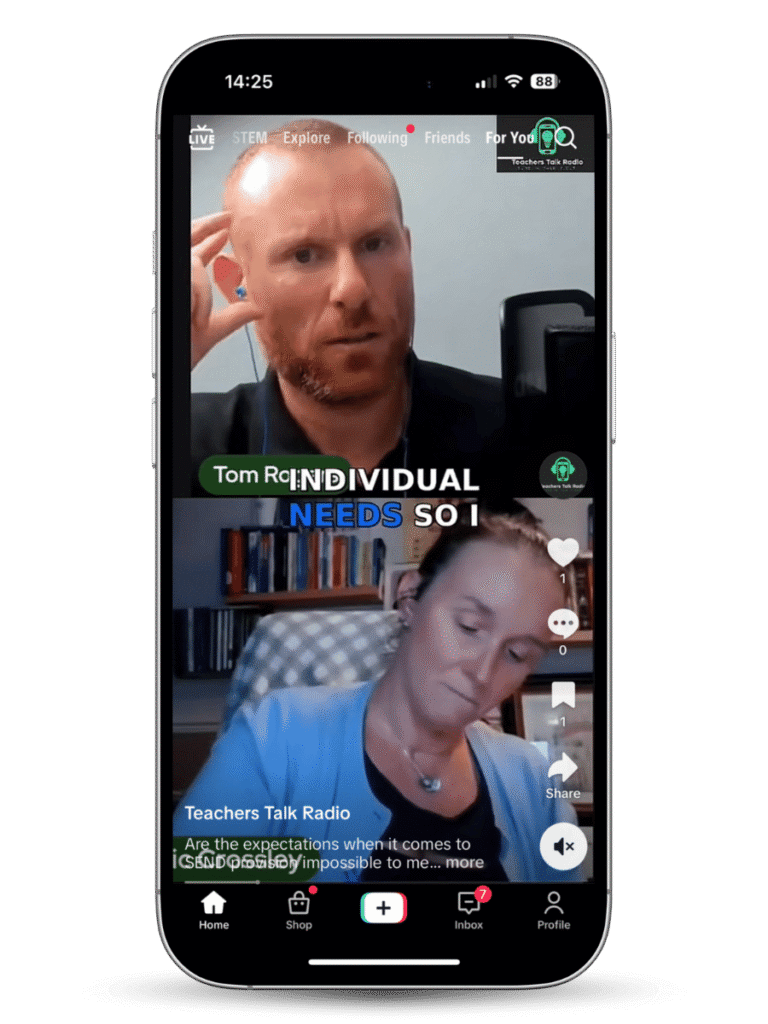
Teachers are regular podcast listeners
The 7 Types of Teachers on Social Media 2025 report by Teacher Tapp has some interesting findings on podcast use by educators.
About one in three listen to education podcasts – a sizeable channel for influence.
Most listened-to podcasts by phase:
Primary teachers:
Primary teachers skew toward lighter, practical shows like Two Mr P’s in a Pod and pedagogy-focused Thinking Deeply about Primary Education.
Secondary teachers:
Secondary teachers lean into subject-specific (maths, behaviour) or research-driven podcasts (Mr Barton Maths).
Senior leaders and headteachers:
Senior leaders engage more with “serious” podcasts tied to evidence, leadership, or networks.
- Evidence into Action (EEF) is especially popular:
- 13% of primary senior leaders/headteachers had listened in the past year (vs 3% of classroom teachers).
- 15% of secondary headteachers reported listening in the past year.
- PiXL podcasts are significant in the secondary leadership space:
- PiXL Pearls: 14% of secondary heads.
- PiXL Leadership Bookclub: 13% of secondary heads.
- Mind the Gap has more traction among primary leaders:
- 12% of primary senior leaders/headteachers vs 4% of non-senior primary teachers.
- Among secondary: 9% of leaders vs 5% of non-leaders
- Evidence into Action (EEF) is especially popular:
Things to watch out for when choosing education podcasts
Podcasts are not one-size-fits-all.
🎧 If your product is leadership-facing, sponsoring or guesting on evidence/leadership podcasts makes sense.
🎧 If it’s classroom-facing, look to the lighter, subject-specific or practice-driven shows.
🎧 A podcast that leans heavily on policy won’t always suit a product-demo style brand; one more focused on classroom stories might prefer softer stories over hard stats. If alignment is off, endorsements may feel wrong.
🎧 Some podcasts ask for fees or expect lots of extras (exclusive interviews, long pre-work). Make sure your budget accounts for content production, time and relationship building, not just the “air time.”
🎧 In educational contexts, saying something about achievement, outcomes, safety etc. may need careful backing. Avoid vague or unverified claims; ensure the host is comfortable with what will be said.
How to approach education podcasters
We connect clients with education podcasts but if you want to DIY we recommend following this process:
Do your research
Before reaching out, listen to a few episodes. Note their tone, recurring topics, style of interview or discussion, and what issues their audience seems to care about. Is it lively debate? More reflective deep dives? Do they bring in school leaders, teachers, or external experts?
Propose formats that suit podcasts
Podcasts aren’t just about “Sponsor message + ad reads.” Think about larger involvement: guest appearances, co-produced episodes, case studies told via conversation, or even serial content (“we helped a school try X; here’s what happened”) which fit the medium well.
Offer value, not just slots
Podcasters often put a lot of work into content: research, editing, promotion. Offering early access, data, stories, or content that supports their angle makes collaboration less one-sided.
Make logistics easy
Provide clear talking points, but avoid scripting. Give them high resolution logos or resource materials if needed. If there are claims about outcomes e.g. “improved attendance by X%” be ready with evidence. Make sure any offers or discounts you mention are valid, easy for listeners to access, and clearly explained.
Measure and follow up
Set expectations together up front: what metrics matter to both of you (downloads, audience feedback, website traffic, use of promo codes). After the episode airs, track what happens (Does listener traffic increase? Do you get new leads? What kind of engagement: comments, emails, social shares?).
Why would a podcast host give airtime to a corporate guest?
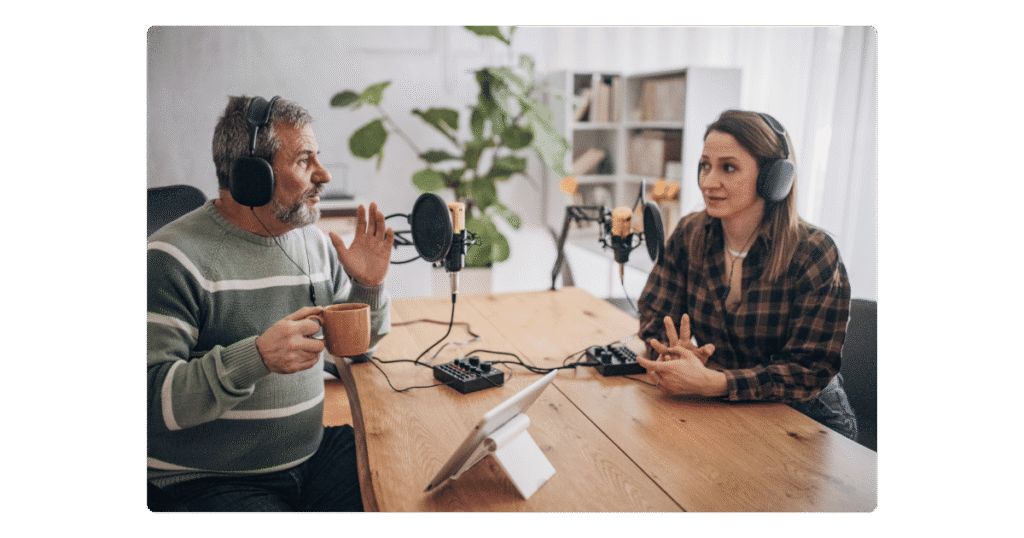
Here’s a slightly awkward question: why would an educational podcast want to host a corporate guest from an educational supplier?
Won’t it feel like “a brand rep doing a pitch”?
The roles inside an edtech company who make the best guests
When you approach a podcaster, don’t say “We’d like to feature our CEO.”
Say: “We can contribute to a discussion on the impact of AI on teacher workload and our Head of Education is an ex-deputy head who now works in edtech.”
Founders or CEOs with an educator background
If the founder is a former teacher, headteacher, or SLT, they can tell a story that bridges both worlds. Podcasters like to hear from people who’ve “been there” and then built something to solve a pain they know first-hand.
Pedagogy or curriculum specialists (internal experts)
Many edtech companies have ex-teachers in roles like “Head of Education,” “Pedagogical Lead,” or “Curriculum Designer.” These people can talk with credibility about teaching practice and research, not just product.
Researchers or data leads
If your product generates interesting insights on hot topics like attendance data, learning analytics, wellbeing surveys and so on, you can discuss findings in ways that help schools understand trends, without sounding salesy.
Partnership or community managers
Sometimes the people who work directly with schools every day (customer success leads, community managers) are the best voices. They’re closest to teacher concerns and can share aggregated stories without pushing a hard sell.
All guests need to bring something their audience wants to hear. That could be:
- A perspective on a hot issue: e.g. “How schools are navigating AI in assessments” or “What the latest data shows about pupil attendance.” If the corporate rep is speaking as an expert, not a salesperson, that’s useful content.
- Stories from schools: bring in case studies, anonymised if needed. “We’ve been working with 50 schools to try X… here’s what we’re seeing.” Teachers love stories that feel like peers’ lived experiences.
- Access to research or trends: edtech companies often sit on rich data sets that teachers don’t usually get. Sharing those insights (without burying them in product talk) makes you valuable to the conversation.
- Thought leadership on policy or pedagogy: a head of education or ex-teacher founder can discuss how policy shifts affect classrooms and what practical responses might look like.
Top tip!
Bring a co-voice
Pair your corporate guest with a teacher or school leader who uses your product. That way, the host gets the authentic educator voice and the corporate perspective side by side.
Sample ways you could collaborate with an education podcast
Podcasts are long-form, but that doesn’t mean inflexible.
When done right, working with a podcaster can provide a longer shelf-life for your message, and credibility that sends ripples far beyond the immediate audience.
- Sponsor a recurring segment (“In this week’s teacher tools”) where you supply content or talking points and let the host lead.
- Guest appearance: someone from your team or a user of your product joins to talk about a challenge schools face, weaving in how your solution helps.
- Serial episodes or mini-case studies: document how a school using your product changes something over time. Could be three episodes: setup, mid-way, result.
- Listener offers or “promo codes” exclusive to that podcast’s audience. Helps trace return.
What UK educational podcasters often talk about
It’s very useful to have a clear idea about what podcasts who have a teacher audience like to talk about.
Workload, stress & teacher wellbeing
Teachers Talk Radio episodes often include reflections on what it’s like to teach, especially dealing with workload, balancing life and work, mental health. Teachers feeling stretched is a consistent concern.
Policy, reform, and regulatory change
Things like exam reform, safeguarding rules, funding cuts, attendance policy, or regulatory oversight come up a lot. These are frequently “current events” topics that have direct classroom or school-leader impact.
Classroom practice / pedagogy
How teachers teach: lesson planning, assessment, behaviour management, differentiation, inclusion, SEND (Special Educational Needs & Disabilities). There’s always interest in practical, classroom-facing tips.
Podcasts like Mr Barton Maths are strong on problem solving, lesson design etc.
Educational equity, “closing the gap”
Inequalities in attainment, differences between school types or socioeconomic groups. Ways to support pupils who are behind, or marginalised. “Mind the Gap” is a podcast whose focus is exactly this.
Technology / EdTech / AI
Use of technology in teaching, online/hybrid learning, how tools (digital platforms, AI, remote learning) can support or complicate teaching. Also navigating challenges around digital access or balancing tech’s benefits/risks.
Behaviour, attendance, parental engagement
Topics like “Attendance issues”, “What happens when pupils don’t come in”, “Parent-school communication”, “How do we get children back into school?” etc are frequent.
Leadership, school management, culture
What it means to lead a school, change culture, manage staff, wellbeing of leadership, balancing strategic vs operational demands. These tend to show up more in podcasts aimed at leaders but often in teacher podcasts too.
Evidence, research, and linking those to classroom practice
Many UK podcasts e.g. The Evidence Based Education podcast, emphasise being “evidence-informed”. They look at what research suggests, how to apply it in practice, criticisms of policy or practice that ignore evidence.
Teacher stories / lived experience
Episodes that let teachers speak about what it’s really like: successes, failures, dilemmas. Real stories tend to connect.
Wellbeing / mental health of pupils
Not just teacher wellbeing but what impacts students: stress, exclusion, behaviour, support for neurodiversity, emotional health, safeguarding. These get discussed in many episodes.
What to pitch / propose to education podcasters
Given these recurring themes, if you’re going to suggest podcast topics (or collaborate with podcasters), some ideas likely to get interest:
- Balanced debate episodes: “Pros and cons of AI in SEND”, “Is remote/hybrid learning here to stay?”, “Exam reform: what’s working / failing”
- Reflective stories by teachers: challenges, failures, what they wish they knew earlier
- Leadership-facing episodes: stepping into school leadership, managing culture, leading change
- Issues around inclusion: neurodiversity, SEND, equity, closing learning gaps, support for underprivileged students
How to connect with podcasters
Choose the right contact channel
Most podcasts list contact details on their website or show notes. Email is still best, but social DM can work if it’s short and respectful. If the host is a teacher, be mindful of term time, they’ll respond faster outside peak workload periods.
Subject line tip: make it sound like an opportunity, not a sales pitch.
“Potential collaboration idea for [Podcast Name]”
“Guest idea: Ex-headteacher with insights on SEND provision”
Give them material that makes saying yes easy
Attach or link to:
- A short guest bio (3–4 lines, not a full CV)
- One or two talking points that fit their theme
- A few lines about your company, in plain English
Optional: a link to previous interviews or talks to show your speaker is comfortable on mic.
If sponsorship is the route, include what you can offer like data insights, giveaways for listeners, or cross-promotion on your own channels.
Follow up lightly, not relentlessly
If you don’t hear back, give it 10–14 days, then send a short follow-up ideally adding a new hook (“We’ve just released new research that ties in with your episode on AI in the classroom”).
If there’s still no reply, leave it. Podcasts are small operations, and silence usually just means they’re full or it’s not a fit right now.
List of podcasts for teachers
Clearly any list like this will never be definitive, but here are some popular educationally focussed podcasts with a diverse range of topics.
If you want your podcast adding to the list just drop us an email with a link and short summary, we/d be happy to add it.
PODCAST
What it covers / audience
Why it could be useful
Broadcast live as an online community radio station for teachers and educatorS.
Very welcome to guests, hosts, and sponsors of all types. Excellent at distributing their content across multiple channels.
Discusses issues around evidence-based education, bridging policy, research, and classroom practice.
Good for credibility; works well if your product or message has research / evidence behind it.
A secondary maths teacher host, interviews re lesson planning, problem-solving, motivation, etc.
If your product involves maths, STEM, assessment tools, or resources; a strong specialist audience.
Real stories from real classrooms
Popular, connects well with teachers, and has large reach.
In their own words…“…a wonderful chance to get to know fellow Primary Education teachers better”
Valuable to primary age school suppliers.
Their mission is to “improve the dialogue between ‘ed’ and ‘tech’ for better innovation and impact”
Focus on education technology (obviously!). Regularly welcomes diverse voices from the education sector
News, reviews, interviews from the UK education scene.
Broad reach; good for awareness, especially among school leaders and early-career teachers.
Focused on maths teaching across phases; classroom ideas, debates.
If maths or numeracy is part of your offer, this is very relevant.
Focused on maths teaching across phases; classroom ideas, debates.
Useful if your product deals with attainment gaps, inclusion, or equity.
Primary and secondary teachers & leaders; wide range of themes, evidence-informed.
Good for primary sector, or where your product supports leadership or change.
For teachers & teacher educators, especially English language teaching / ESL / EAL topics.
Great fit if your audience includes language teachers, overseas schools, or EAL support.
Experts + teachers / leaders, research & practice, impact in UK schools.
Strong for evidence-based tools; good for credibility with leadership / procurement audiences.
Podcasts aren’t just background noise for teachers
They’re trusted spaces where educators tune in for ideas, reflection, and a sense of connection.
The trick is to pick the shows that align with your audience, respect the format, and focus on value before visibility.
Do that, and podcasts can become one of the most credible, long-lasting ways to build relationships with educators.
